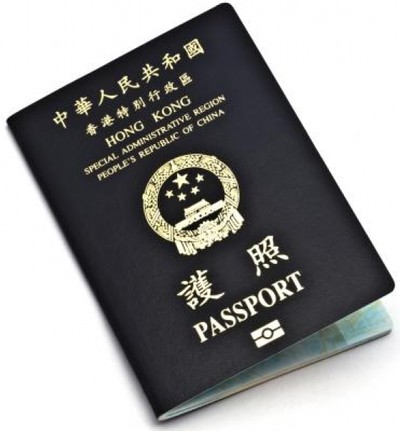Meanings of Right of Abode and Other Terms
 This page will help you better understand the meanings of the major terms related to the right of abode in the Hong Kong Special Administrative Region (HKSAR) – ‘right of abode’, ‘right to land’, ‘Chinese citizen’, ‘settled’ and ‘ordinary residence’.
This page will help you better understand the meanings of the major terms related to the right of abode in the Hong Kong Special Administrative Region (HKSAR) – ‘right of abode’, ‘right to land’, ‘Chinese citizen’, ‘settled’ and ‘ordinary residence’.
Right of Abode
The right of abode in the HKSAR will allow you the right:
• To land in the HKSAR
• To be free from any condition of stay (including a limit of stay) in the HKSAR;
• Not to be deported from the HKSAR; and • Not to be removed from the HKSAR.
Right to Land
If you lose your right of abode in the HKSAR you will automatically acquire the right to land in the HKSAR in accordance with the law, which will allow you the right:
• To land in the HKSAR
• To be free from any condition of stay (including a limit of stay) in the HKSAR; and
• Not to be removed from the HKSAR.
You will be able to enter the HKSAR freely to live, study and work without any restriction.
Chinese Citizen
A Chinese citizen is a person of Chinese nationality under the Nationality Law of the People’s Republic of China as implemented in the HKSAR pursuant to Article 18 of and Annex III to the Basic Law and interpreted in accordance with the Explanations of Some Questions by the Standing Committee of the National People’s Congress concerning the Implementation of the Nationality Law of the People’s Republic of China in the HKSAR, which was adopted at the 19th meeting of the Standing Committee of the National People’s Congress at the 8th National People’s Congress on 15 May 1996.
You will be considered a Chinese citizen under the Nationality Law if you are a Hong Kong resident or former resident of Chinese descent who was born in Mainland China or Hong Kong. Your citizenship is not affected by whether you hold, or have held, a Hong Kong British Dependent Territories citizen passport, British National (Overseas) passport, or any other foreign passport unless you have made a declaration of change of nationality according to the law.
• More information on changes of nationality
• Nationality Law of the People’s Republic of China
• Explanations of some questions by the Standing Committee of the National People’s Congress concerning the implementation of the Nationality Law of the People’s Republic of China in the HKSAR
• Further information on the nationality of a person of Chinese descent in the HKSAR
Settled
You are settled in Hong Kong if:
• You are ordinarily resident in Hong Kong; and
• You are not subject to any limit of stay in Hong Kong.
Ordinary Residence
You have ordinary residence in Hong Kong if you remain in Hong Kong legally, voluntarily and for a settled purpose (such as for education, employment or residence), whether of short or long duration. That status does not change if you are temporarily absent from Hong Kong.
Whether or not you have ceased to be ordinarily resident in Hong Kong is determined by your circumstances and those of your absence. The circumstances may include:
• The reason, duration and frequency of any absence from Hong Kong;
• Whether you have habitual residence in Hong Kong;
• Whether you are employed by a Hong Kong based company; and
• The whereabouts of the principal members of your family (spouse and minor children).
You will, however, not be treated as ordinarily resident in Hong Kong
• During any period in which you remain in Hong Kong:
• With or without the authority of the Director of Immigration, after landing unlawfully; or
• In contravention of any condition of stay; or
• As a refugee, or while in detention pending determination of refugee status or removal; or
• While employed as a contract worker from outside Hong Kong under a Government importation of labour scheme; or
• While employed as a domestic helper from outside Hong Kong; or
• As a member of a consular post within the meaning of the Consular Relations Ordinance; or
• As a member of the Hong Kong Garrison; or
• As the holder of a prescribed Central People’s Government travel document; or
• During any period of imprisonment or detention pursuant to the sentence or order of any court.
